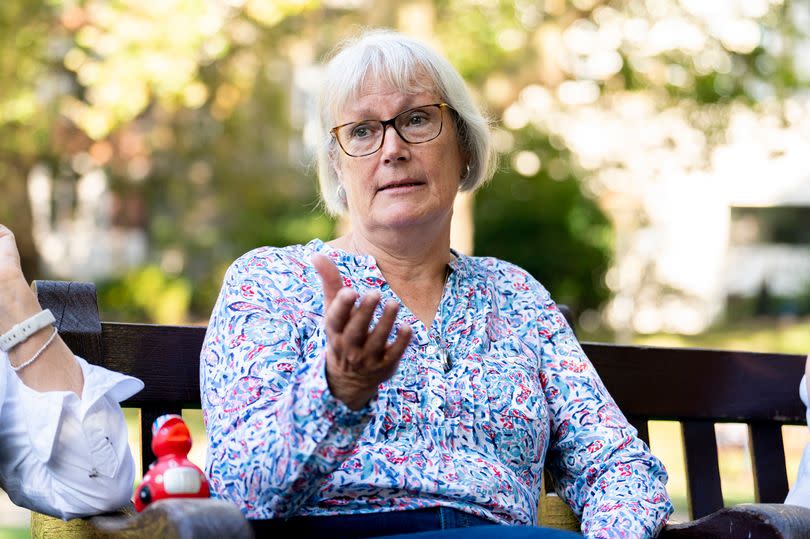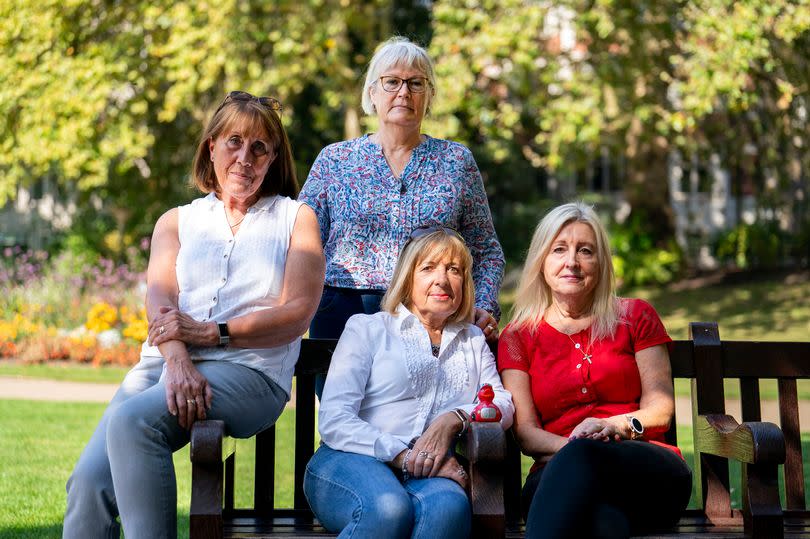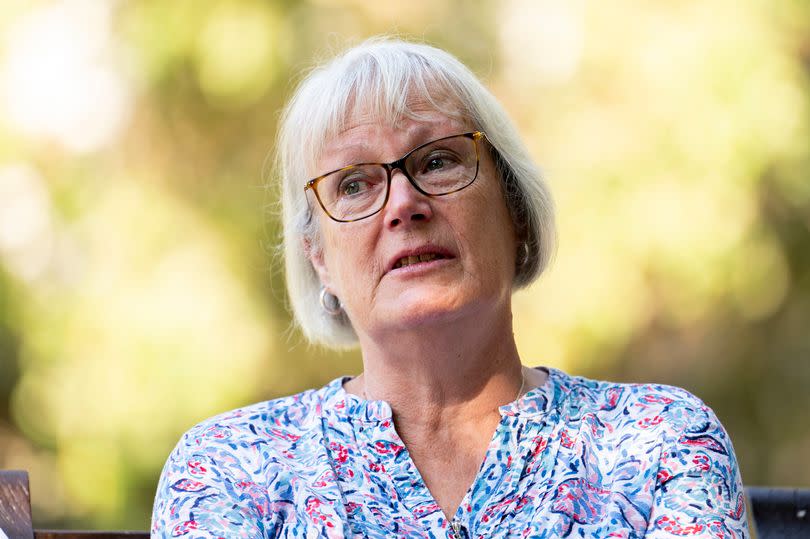Somerset victim of infected blood scandal vows fight is not over yet

A Taunton woman who was one of the victims of the infected blood scandal has vowed that their fight is "not over yet". Campaigners were praised for their "tireless" efforts to get justice for people affected by the scandal - dubbed the worst treatment disaster in the history of the NHS.
The Infected Blood Inquiry, which was launched in 2017 by former prime minister Theresa May, will publish its final report on Monday and is expected to shine a light on how "wrongs were done at individual, collective and systemic levels". Tens of thousands of people were infected with contaminated blood products or blood transfusions between the 1970s and early 1990s.
An estimated 3,000 people have died as a result while those who survived have lived with life-long health implications. Hundreds of those affected by the scandal gathered at Westminster on Sunday afternoon at an event organised by the Hepatitis C Trust to mark the end of the inquiry. Some of those in attendance have been campaigning for decades for justice.
Attendees held a one-minute silence to remember people who have died.
Read More - Somerset sisters are honouring their mum in an emotional way
Read More - Frozen in time Somerset town that looks like it hasn't changed in 600 years
Three women who were infected by contaminated blood products have told of the "magical" relief of meeting each other through the Infected Blood Inquiry and realising they were not alone in their health struggles. Sue Wathen, Joan Edgington and Nicola Leahey were all infected with hepatitis C. The three met through the inquiry and are now part of a group that call themselves "blood friends".

Ms Edgington, of Taunton, Somerset, was infected in January 1991 after receiving a blood transfusion during surgery and was diagnosed a few years later. Ms Edgington told of going down with "chronic fatigue" before she was tested for hep C, and of being left with health issues springing from a medical trial of what she termed "extremely harsh chemotherapy" - which is no longer used to treat the condition and which she said she "just survived".
Ms Edgington said: "I was there at the opening of the inquiry and I went as an individual on my own and just sat in this wonderful auditorium, it was a fabulous space, and I couldn't believe that all those people there had the same story.
"And it was overwhelming...just to know you weren't alone. They had very kindly put in some Red Cross people. I think I worked my way through a box of tissues and I kept saying to her: 'I'm not sad I am just relieved'."
She went on to say "it was the validation" of sharing similar experiences of medical battles that at points seemed inexplicable.
"So where we had maybe begun to feel like we were hypochondriacs, that we were wasting the doctors' time, that the random blood tests were just an anomaly, no they weren't," she said.
"They were all part of the pattern. So that was just a real personal impact that day, it took me about a fortnight to process it. And we've had telephone numbers swapping and emails, and then to plug into a group of people who totally got your story, who knew what you were dealing with on a day-to-day basis, who could share articles with you that you could take to your GP, who could tell you about networks and other groups, I can't tell you the relief. It really was magical."
Rachel Halford, chief executive of The Hepatitis C Trust, said: "It has been a really long road to get here. We would not be here without the tireless campaign efforts of all of the people in the community - you signed petitions, spoke to the media, shared your experiences with the inquiry, lobbied your MPs and fought tooth and nail to be heard."
She added in a statement: "But the fight is not over yet. Action from Government to right these historic wrongs is needed as urgently as ever: more than 650 who received infected blood or blood products have died since the Infected Blood Inquiry began.
"The Government must implement all the recommendations of the inquiry and announce a clear timeline for when compensation payments will be made as soon as possible."
Andy Evans, co-founder of campaign group Tainted Blood, told the crowd: "We've lost so many people to this scandal along the way. Many of you are here because you've lost someone. Our journey to this point has been defined by loss, and hurt, and sadness and by anger. We will never forget all that we've lost, but with each other's help, perhaps now, here, is where we start to heal."
Mr Evans contracted hepatitis C and HIV when he was five years old from being given an infected product in the 1980s.
Joan Edgington, a mother-of-two who contracted hepatitis C when she received infected blood in 1991, addressed the crowd as her "tribe", adding: "This is a bond, a connection that was cruelly forced upon us but now we use it as a driving force."

Speaking ahead of the inquiry, a Government spokesperson said: "This was an appalling tragedy that never should have happened. We are clear that justice needs to be done and swiftly, which is why have acted in amending the Victims and Prisoners Bill.
"This includes establishing a new body to deliver an Infected Blood Compensation Scheme, confirming the Government will make the required regulations for it within three months of Royal Assent, and that it will have all the funding needed to deliver compensation once they have identified the victims and assessed claims.
"In addition, we have included a statutory duty to provide additional interim payments to the estates of deceased infected people. We will continue to listen carefully to the community as we address this dreadful scandal."

 Yahoo News
Yahoo News 
